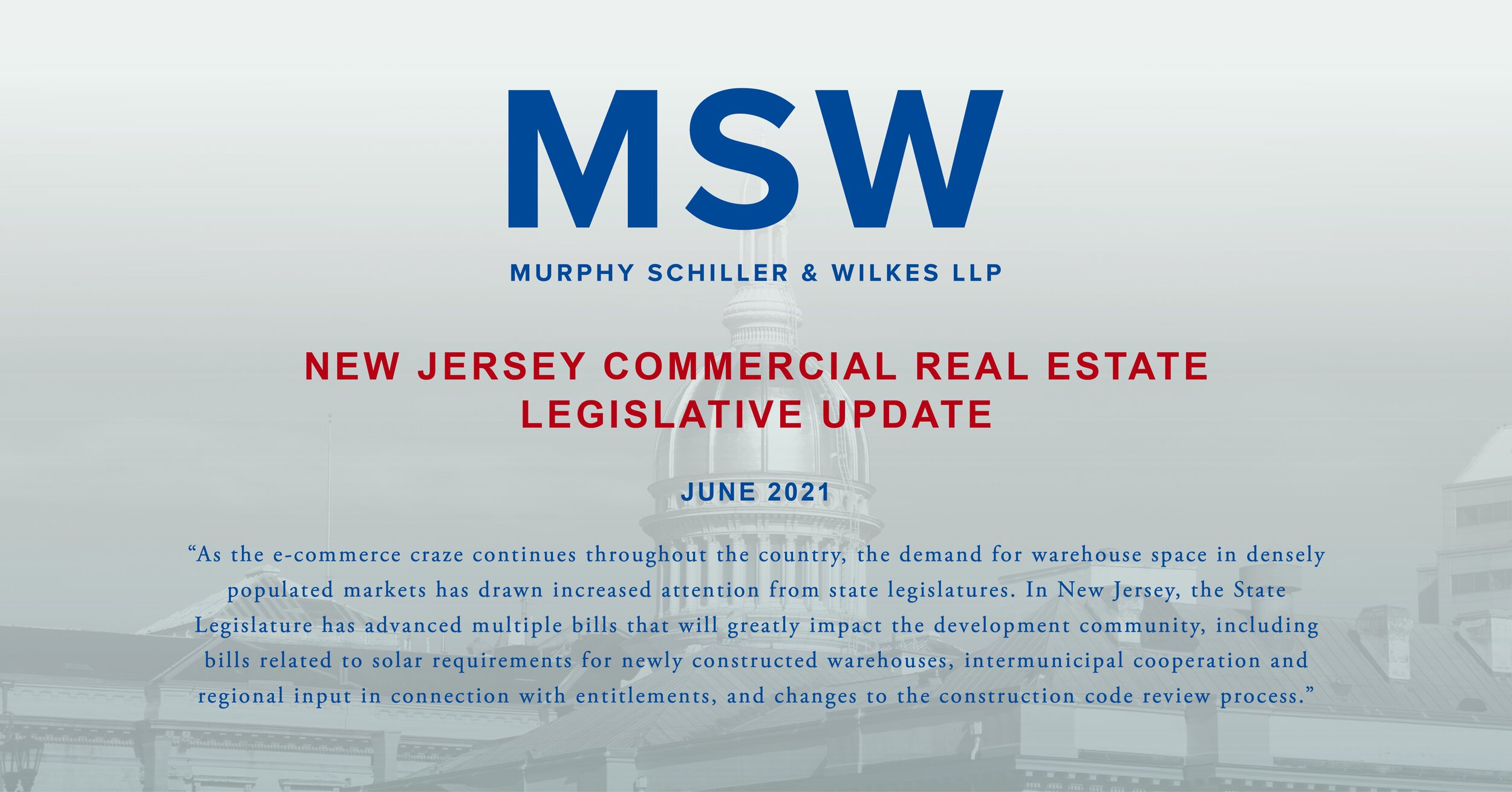
As the e-commerce craze continues throughout the country, the demand for warehouse space in densely populated markets has drawn increased attention from state legislatures. In New Jersey, the State Legislature has advanced multiple bills that will greatly impact the development community, including bills related to solar requirements for newly constructed warehouses, intermunicipal cooperation and regional input in connection with entitlements, and changes to the construction code review process.
- Solar-Ready Buildings
The bill defines warehouses as any room, structure, building or facility with a minimum of 10,000 square feet being used primarily for the storage of goods intended for sale. Those projects deemed warehouses under the statute must be a “solar-ready building” which is a building that incorporates design elements, as specified by the DCA, which allow for the installation of rooftop solar panels and, if the structure or building is intended to use hot ware, a solar water heating system.
Once signed, the bill will apply to all warehouses which have not obtained a completed construction permit before July 1, 2020.
A copy of the bill can be found here.
- Inter-Municipal Land Use Boards Revisions
A pending bill, currently before the New Jersey State Legislature, would require “retail warehouses” to be considered by a county planning board or the State Planning Commission. The proposed bill would require the host municipality of a “retail warehouse” to deliver a notice of intermunicipal impact to all adjoining municipalities. Notified municipalities who determine they have concerns about the development project may draft and deliver a resolution to the host municipality stating their apprehensions should the project progress. The bill then requires a host municipality, in conjunction with each interested adjacent municipality, convene a joint intermunicipal board, which allows each municipality equal representation, and considers submitted resolutions of intermunicipal concern. In addition to the notice of intermunicipal impact, the host municipality would be required to prepare and distribute a regional economic impact report – the cost of which will be solely shouldered by the developer.
The drafters of the bill also include a section which calls for the creation of the “Intermunicipal Impact Advisory Board”, consisting of 15 members appointed by the Governor for a term of 3 years. The Intermunicipal Impact Advisory Board will not only create guidelines pertaining to what constitutes an intermunicipal concern, but will also establish procedures for intermunicipal board meetings and hear appeals regarding “retail warehouse” approvals.
A copy of the bill can be found here.
- Municipality Construction Code Review Process
The expedited plan review process may be offered to applicants through a municipality’s construction code enforcement agency. If a municipality does not offer in-house expedited plan reviews, an applicant may retain a private plan review agency, so long as they are properly licensed. Utilized private plan review agencies will be obligated and subject to all the same requirements applicable to other enforcing agencies which conduct plan reviews and will be conferred all the same powers.
Though the use of private plan review agencies is permissible under the proposed bill, the local enforcing agency will maintain control over the construction project and retain the authority and obligation to issue a certificate of occupancy. If a project entails the use of a private plan review agency the agency will receive the fee associated with the expedited plan review and the local enforcing agency will retain all general application fees.
A copy of the bill can be found here.
FOR MORE INFORMATION ON THESE BILLS, PLEASE CONTACT CHRIS J. MURPHY, ESQ. AT (973) 705-7443 OR VIA EMAIL AT CMURPHY@MURPHYLLP.COM.
Murphy Schiller & Wilkes LLP (MSW) is a boutique law firm servicing the commercial real estate and construction industries. Headquartered in Newark, New Jersey, the firm represents a wide range of clients, including institutional, publicly traded real estate companies, international and regional lenders, national contractors and subcontractors, and family offices. The firm has been ranked as a top law firm by both Chambers & Partners and U.S. News & World Report.